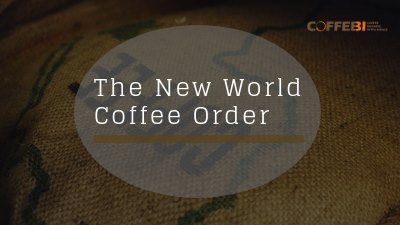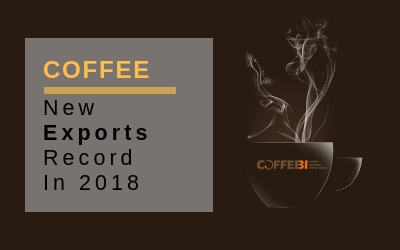The New World Coffee Order
 The new repetition of a cycle of low prices poses numerous questions related to the coffee product. The dailycoffeenews reports Mr. Samper’s opinion about the global situation.
The new repetition of a cycle of low prices poses numerous questions related to the coffee product. The dailycoffeenews reports Mr. Samper’s opinion about the global situation.
Although the market grows, not only in terms of volume but especially of revenues, it is not possible to remove the coffee from the trap of goods that disadvantages the world’s poor people who produce coffee for the benefit of the rich in the world who sell it and enjoy its benefits.
Because of this unjust redistribution of income along the value chain, farmers ‘and producers’ associations have begun to complain about their unjust share in the sector’s revenues.
Luis F. Samper is manager of communication and marketing of the Federation of Coffee Growers of Colombia (FNC), writer and co-author of several coffee publications and expert in the value chain of coffee and sustainability for the coffee industry: “they will find it is obvious and natural for some industry giants to impose terms of payment for several months on their suppliers, knowing that the reduced financial costs of their inventories will be financed by lower prices paid to farmers, in the meantime these same companies will continue to publish Sophisticated and visually appealing sustainability: It is not surprising that NGOs and certification agencies will claim, once again, that they add value … but to whom? For themselves? To coffee growers? For industry? “
Between the northern and the southern part of the world there are the big brands that manage the product on the financial markets generate strong imbalances in terms of global income redistribution.
Mr. Samper: “Of course, the political debate in the coffee-producing countries will also start to heat up: studies with preconceived solutions will be rewritten by economists focused on the growth of the sector and the increase in the production of cheap coffee, neglecting the strategies for the acquisition of value: their proposals, once again, will lack the vision necessary to face the problems of sustainable profitability on the part of the producers“.
“We need a new world coffee order that can generate growth and create opportunities for all members of the industry’s proposals, guaranteeing fairness and sustainability through a more equitable redistribution of profits along the coffee value chain and taking advantage of the growing demand and availability of global consumers to pay even a high price for quality coffee”.
There is marketing potential to be developed, says Mr. Samper, through the use of brands that know how to use the three principles of “quality, transparency and knowledge” to reach coffee-producing communities and consider them as long-term partners rather than as sources interchangeable supply.
Mr. Semper says, “These principles (quality, transparency and knowledge), which have been successful in Third Wave coffee, are consistent with the recognition of farmers as partners and non-suppliers simply as anonymous suppliers and thus generate collaborative development between brands and origin.”
Roasters will also consider representatives of producing countries as members of their boards of directors or internal audit committees to ensure that this spirit of collaboration is part of their brand’s DNA”.
Producers and their associations must adapt to new circumstances. A change of attitude along the coffee value chain is necessary.
The formula proposed by Samper is this: “the producing institutions must create and defend their collective intangible assets, associating them with qualitative and incremental improvements towards sustainability, they will have to develop unified institutions and strategies with a strong governance structure and establish links of mutual loyalty between producers and buyers: they must be ready to share knowledge, create brands and maintain geographical indications that add value to their product, and only with this strategy will high-quality regions and small-scale producers be free to switch to new production models, such as contract agriculture, in which the risks of producing coffee can be shared”.
Exporters and importers need to rethink their role in the sector, leaving the current attitude of “conveyor belt market signals” and building relational and interdependent value chains between farmers and industry.
In the New World Coffee Order, import and export operators also become ambassadors of origin, improving the relationship of brands with the communities and the quality of the growing coffee. Mr. Samper concludes: “the” Indiana Jones “scheme, which highlights heroic buyers during trips to exotic places to discover the best coffee will be replaced by transparent narratives where farmers and origins are true heroes and report their allies.“



